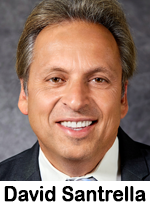TuneIn Offers Free Digital Transmission to AM Radio Stations
Audio content aggregator TuneIn is offering FCC-licensed AM broadcasters in the U.S. access to its analytics service Amplifier and increase the sound quality of their digital broadcasts for free with TuneIn On-Air. The company says, “With the accessibility of terrestrial radio on the decline, from electric vehicles without receivers to smart home systems that rely entirely on digitally streaming content, the industry is at a critical crossroads. TuneIn On Air digitally optimizes the reach of audio content to over 30 million TuneIn users across the country. Accessibility of AM content also increases to over 200 connected devices that partner with TuneIn, including, but not limited to, Amazon Alexa; Google Home; Sonos and Bose speakers; all iPhones and Android-based phones; and Tesla, Fisker and VinFast electric vehicle integrations.” TuneIn CEO Rich Stern adds, “The future of AM Radio is on the top of all of our minds. TuneIn is committed to helping AM radio thrive in the digital world. It offers such a vast and rich library of audio programming that is integral to millions of Americans’ daily lives. Offering AM broadcasters the opportunity to digitize through TuneIn On Air for free is one way we can build a brighter future together.”
streaming content, the industry is at a critical crossroads. TuneIn On Air digitally optimizes the reach of audio content to over 30 million TuneIn users across the country. Accessibility of AM content also increases to over 200 connected devices that partner with TuneIn, including, but not limited to, Amazon Alexa; Google Home; Sonos and Bose speakers; all iPhones and Android-based phones; and Tesla, Fisker and VinFast electric vehicle integrations.” TuneIn CEO Rich Stern adds, “The future of AM Radio is on the top of all of our minds. TuneIn is committed to helping AM radio thrive in the digital world. It offers such a vast and rich library of audio programming that is integral to millions of Americans’ daily lives. Offering AM broadcasters the opportunity to digitize through TuneIn On Air for free is one way we can build a brighter future together.”



 through a bill that is before you now. AM radio stations continue to be the backbone of many communities. They serve their audiences with programming features like news updates, traffic/weather reports, sports play-by-play, and talk programs. In some municipalities, AM radio stations also cater to a specific immigrant community, reaching their listeners with a specific foreign language or other programming elements like music or sports.” They go on to say, “H.R. 1279, as it is written, would make Daylight
through a bill that is before you now. AM radio stations continue to be the backbone of many communities. They serve their audiences with programming features like news updates, traffic/weather reports, sports play-by-play, and talk programs. In some municipalities, AM radio stations also cater to a specific immigrant community, reaching their listeners with a specific foreign language or other programming elements like music or sports.” They go on to say, “H.R. 1279, as it is written, would make Daylight  Saving Time permanent, thus impacting AM radio stations’ power and, therefore, coverage in the crucial morning drive daypart. This issue would be even more detrimental during the darkest days of November, December, January, and February, when AM stations would not be at full power until at least 8:00 am. From a programming and revenue standpoint, the morning drive daypart is still one of the most significant dayparts on an entire radio station. It’s the daypart that generates the most amount of revenue and is a cornerstone for the rest of the programming day. AM radio is facing a multitude of challenges. Radio, in general, faces constant headwinds from an ever-changing media landscape. This challenge might likely be the death blow to many AM radio stations. I am confident you don’t want to see that happen.
Saving Time permanent, thus impacting AM radio stations’ power and, therefore, coverage in the crucial morning drive daypart. This issue would be even more detrimental during the darkest days of November, December, January, and February, when AM stations would not be at full power until at least 8:00 am. From a programming and revenue standpoint, the morning drive daypart is still one of the most significant dayparts on an entire radio station. It’s the daypart that generates the most amount of revenue and is a cornerstone for the rest of the programming day. AM radio is facing a multitude of challenges. Radio, in general, faces constant headwinds from an ever-changing media landscape. This challenge might likely be the death blow to many AM radio stations. I am confident you don’t want to see that happen.